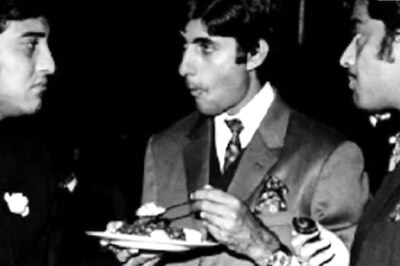
views
In today’s fast-paced world, anxiety has become an increasingly common issue, especially among the younger generations, including Generation Z and millennials. The modern landscape, with its unique stressors such as social media pressures and economic uncertainties, has given rise to heightened levels of anxiety. To shed light on this pressing concern, we turn to two seasoned licensed clinical psychologists, Sandeepa Kaur and Kanika Choudhary, who provide valuable insights on understanding and overcoming anxiety.
Sandeepa Kaur, a licensed clinical psychologist with years of experience, acknowledges the alarming rise of anxiety among today’s youth. She identifies several factors contributing to this surge, including the constant exposure to social media and the looming specter of economic instability.
Kanika Choudhary, Lead Clinical Psychologist, DocVita, believes, “Even though Gen Z is equipped with abundant information to voice out their stress and anxiety, it is important that we create a validating environment to support their internal resilience and recognize that their voices matter and their experiences are witnessed. On the other hand, millennials struggle to express themselves as they are constantly oscillating between being themselves and conforming to societal norms. This often paves the way to self-doubt and anxiety.”
Importantly, Kaur offers a range of effective strategies for combating these anxieties.
For many individuals, fostering self-awareness is the initial step in managing anxiety. Kaur advises individuals to reflect on and identify the specific triggers that contribute to their anxiety. These triggers could range from feelings of unpreparedness to the excessive use of social media, or even deeply personal factors.
Kaur emphasizes the significant impact of thoughts on anxiety levels. Negative thought patterns can exacerbate anxiety. To counter this, she recommends incorporating mindfulness and meditation practices into daily routines. These techniques can help individuals stay grounded and manage racing thoughts more effectively.
Furthermore, Kaur underscores the importance of embracing a healthy lifestyle. Lifestyle choices play a pivotal role in managing anxiety. She suggests that regular exercise, a balanced diet, adequate sleep, and moderation in caffeine and alcohol consumption can make a profound difference in reducing anxiety levels.
One practical piece of advice from Kaur is to disconnect in order to reconnect. Stepping away from digital devices and reducing the pressures of constant comparison and information overload can significantly alleviate anxiety.
Above all, Kaur encourages those struggling with anxiety to seek help. Opening up to friends, family, or a therapist about one’s feelings can provide much-needed relief and support. By adopting these strategies, individuals from Generation Z and millennials can take proactive steps toward managing their anxiety and leading happier, more balanced lives.
Choudhary emphasizes the importance of validating their experiences. Despite having access to vast amounts of information and resources, these individuals need to feel that their voices are heard and their experiences are acknowledged. Creating a supportive environment is crucial for their mental well-being.
For millennials, Choudhary suggests identifying external expectations and establishing personal boundaries. By recognizing and managing the pressure to conform, millennials can maintain their authenticity and reduce anxiety. Seeking out supportive relationships that encourage them to be their true selves is also key.
Anxiety is a prevalent issue affecting Generation Z and millennials, driven by modern stressors. By adopting these strategies and seeking support when needed, individuals from these generations can take steps toward a happier and more balanced life.




















Comments
0 comment